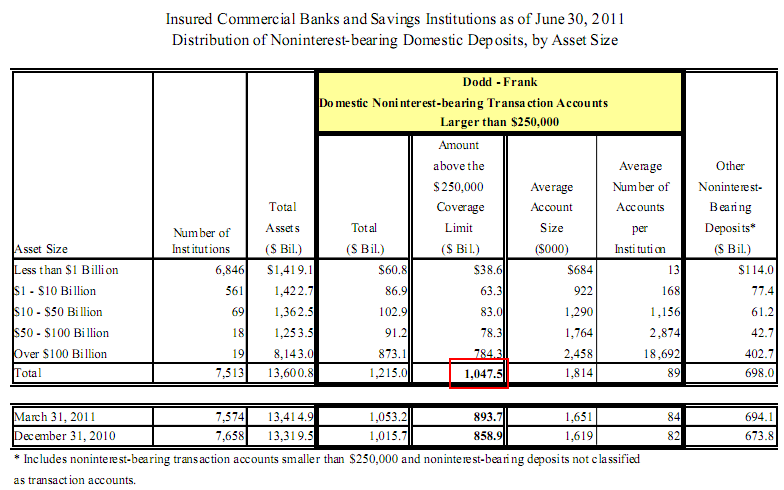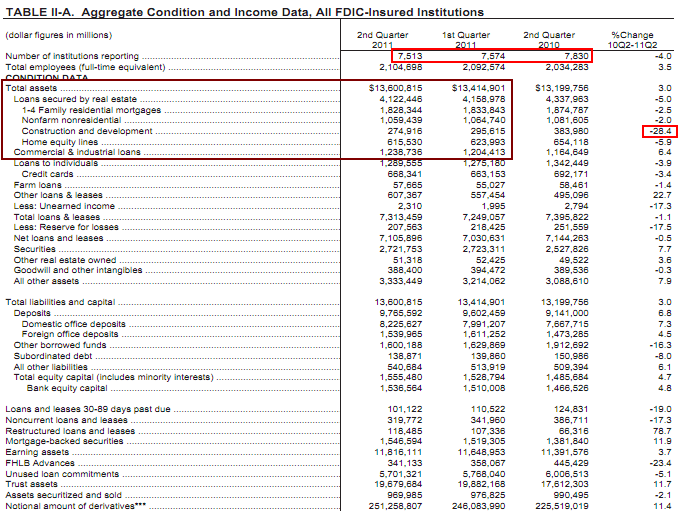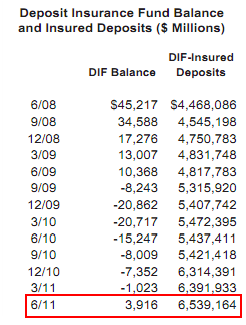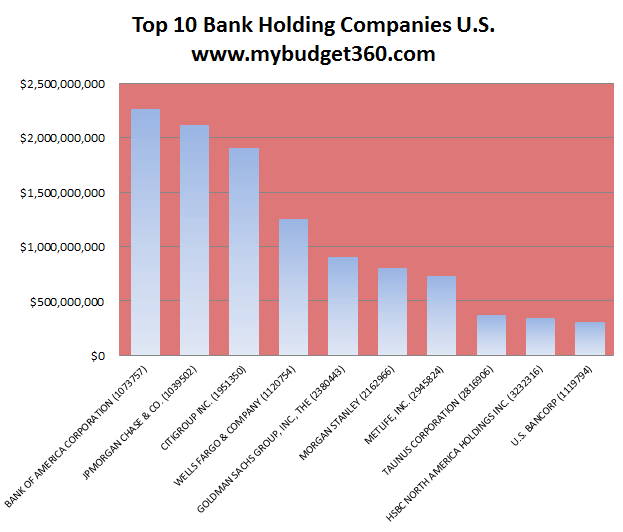...over $1 trillion in deposits are over the $250,000 FDIC limit. $6.5 trillion in insured deposits backed by $3.9 billion.
It is amazing how much ill placed faith is thrown into the current banking system when there is plenty of evidence of insatiable malfeasance. The FDIC recently released its quarterly banking report and somehow dismal information was twisted as being positive. Take for example the reality that $6.5 trillion in insured deposits are backed by $3.9 billion. Does this give anyone any comfort? What is even more staggering is you have $1 trillion in deposits above the $250,000 FDIC protection limit riding it out with absolutely no protection. The banking sector is going to face dramatic problems ahead because the past issues of bad loans have yet to be realized. Sure, accounting trickery and fancy financial magic can buy you a few years but ultimately you have to come to terms with the deep issues in the balance sheet. The FDIC is overseeing an industry with $13 trillion in “assets” and only carries a $3.9 billion insurance fund. It appears the wizard behind the curtain is blowing more smoke than ever.
$1 trillion in deposits with no protection

One of the upsetting revelations in the quarterly report is the fact that over $1 trillion in deposits are not insured by the $250,000 limit. Most of these deposits are placed in the too big to fail institutions. As you can see from the table above, the U.S. has over 7,500 banking institutions but only 19 with over $100 billion in assets. Incredibly, these are the most problematic banks as well. The vast majority of these deposits are simply out to sea with no sail. This only brings up the issue of potentially more bailouts as if the trillions of dollars given to the banking sector were not enough already. Look at how well the bailouts have helped the wilting economy.
Contrary to what the public is told, the banking sector is not in healthy shape. Take a look at these too big to fail banks and how well they have done in 2011:

Many of the biggest banks in the country are down from 12 percent all the way up to 38 percent including the recent rally. Bank of America with over $2 trillion in banking assets has fallen by a jaw dropping 38 percent. The market realizes the instability inherent in the banking sector because little has been done to remedy the massive bad loans in real estate. In the face of all this, the too big to fail banks have gotten even bigger. While we hear about layoffs and companies having to get by with fewer employees the banking sector continues to add people:

Where are the jobs? Apparently with the too big to fail:
Q1 2011 employees: 2,092,574The big issues still to hit big banks are the over $4 trillion in loans secured by a variety of types of real estate. We’ve covered the commercial real estate problems and very little has been done to deal with this problem aside from ignoring it and pretending all will be well. Maybe some of the too big to fail banks can lease out these empty offices and building and place their own new hires in there? After all, when your business model relies on taxpayer robbery bailouts then what do you have to lose?
Q2 2011 employees: 2,104,698
What is also a key point above is the reality that the number of banks continues to shrink even though the too big to fail continue to increase their footprint on the nation. Of course those $13 trillion in assets are backed by a tiny insurance fund:

While the above banks hold $9.7 trillion in deposits these are liabilities on their balance sheet.
In the last year deposits have gone up by $600 billion simply because of the volatility in the markets. People would rather have their money parked in an insolvent bank paying close to 0 percent than play the high frequency casino that has become our global stock markets.
Think about the root of the problem back in 2007 and 2008. Banks had gotten too big and too leveraged and risk was concentrated around a few big players. That was obvious. Instead of confronting the obvious problem these banks got even bigger:

So the obvious and glaring reality is that nothing has been done to fix the root causes of this financial crisis. In fact, we have simply put duct tape over the leaks in the dam and hope that things stay put for as long as possible. Yet how sustainable is this system?